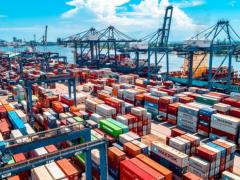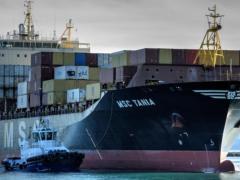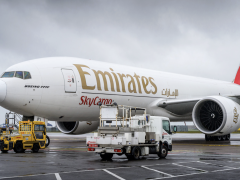Freight associations in Mozambique are stepping up their efforts to urge the government to implement measures that protect local businesses as shipping lines continue expanding into the freight forwarding sector, securing the bulk of lucrative contracts.“As local freight forwarders, we simply cannot compete with these large companies,” said Desiderio Fernandes, president of the Federation of Clearing and Forwarding Associations of Southern Africa (FCFASA).Paulo Aquimo, a member of the Association of Logistics and Shipping Operators of Mozambique (Asolnamo), echoed Fernandes' concerns. “With shipping lines now acting as freight forwarders, they control the entire supply chain, making it nearly impossible for small to medium enterprises (SMEs) to compete,” he said. “We just don’t have the deep pockets that these companies have.”The issue isn't confined to Mozambique. In June, Zimbabwe introduced a decree mandating that logistics and transportation businesses be fully owned by Zimbabwean nationals. This protective measure, Fernandes noted, was an effort to safeguard local operators, a move that Mozambique’s freight associations are pushing for as well.Protecting domestic industry"Ethiopia and Kenya are already moving in this direction as well, while Tanzania is still trying to resolve the issue," said Fernandes. "We are actively petitioning the Mozambican government, engaging in heated discussions, to take similar action. Unfortunately, there has been no concrete move to protect the domestic industry so far. The biggest loser in this scenario is the national revenue collection, as foreign companies dominate key sectors, diverting profits and taxes away from the local economy."He said shipping lines monopolising the entire supply chain was a form of protectionism. “Without similar measures in place, 90% of Africa's freight and transport SMEs will face bankruptcy,” Fernandes warned. “In recent discussions with the government, we highlighted the need for reciprocal contracts for African nationals. When shipping lines retain 100% of transit movement in-house, outsourcing only a fraction of it, local businesses are left struggling to survive.” The associations argue that without intervention, the growing dominance of multinational shipping lines could severely impact the future of African freight and logistics industries.Multinationals monopolising ICDs“There is a strong argument for Mozambique to adopt similar measures as Zimbabwe,” said Fernandes. “Multinational companies can invest in mega projects, but their warehouses are exclusively for their own use. They monopolise inland container depots (ICDs) and internal depots, which are only for their consumption and not accessible to the broader market.”He said the trend of shipping lines entering the freight forwarding business was being mirrored by other multinational companies, with some port operators now also stepping into the sector."How can you be both the judge and the jury?" Fernandes questioned. "This is a major concern for us, not just as local forwarding associations but also for SMMEs and SMEs. It’s becoming increasingly difficult for local players to compete in a market where large multinationals control multiple points of the supply chain. It is simply a conf lict of interest and not beneficial to the country."Levelling the playing fieldThe associations maintain that introducing a policy requiring logistics companies to be Mozambican-owned would help level the playing field and prevent multinationals from dominating key sectors. “Without such regulations, local operators are being squeezed out of the market, while multinationals enjoy a monopoly over these critical assets,” added Aquimo.Associations like Asolnamo have welcomed a new decree from Mozambican customs authorities stipulating that cargo clearing cannot be handled by the same company involved in the shipping process, requiring the involvement of a third-party clearing agent. Local clearing companies now stand to benefit as they must be procured for this service. Companies that prefer not to use a local agent have the option of opening a separate business for clearing, but it must operate from different premises, as Mozambican law prohibits two companies from functioning from the same physical address.The decree will take effect as existing operating licences expire. Under the new regulations, licences will be issued on a per-sector basis, meaning separate licences will be required for transport, ships’ agency, warehousing, and clearing operations, among others. Each licence carries its own financial implications, with fees varying based on the risk profile of the sector. LV
Carriers squeezing out SME forwarders
Comments | 0












